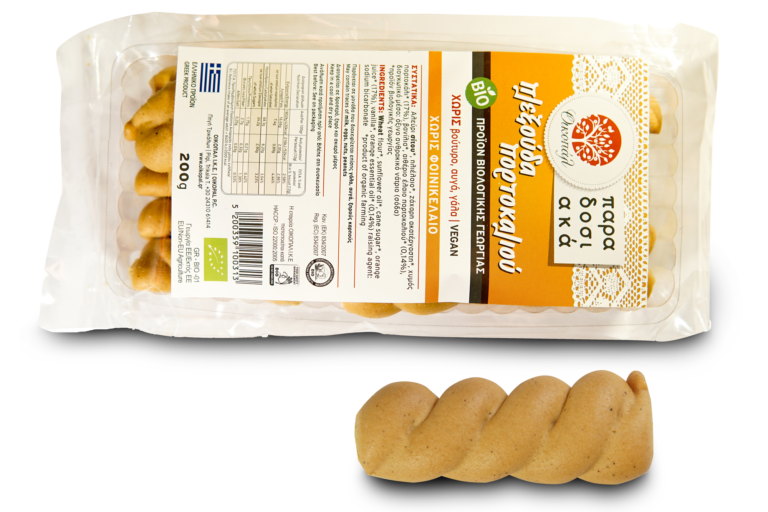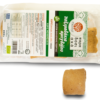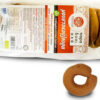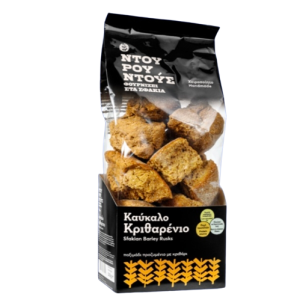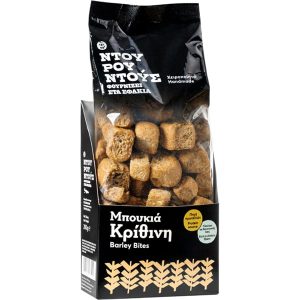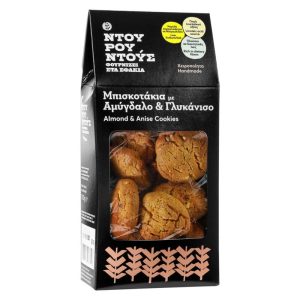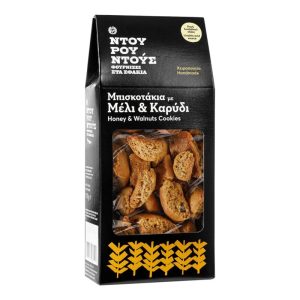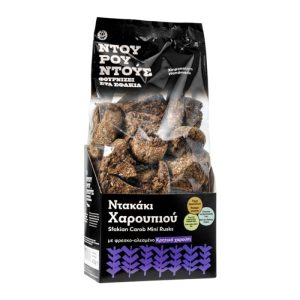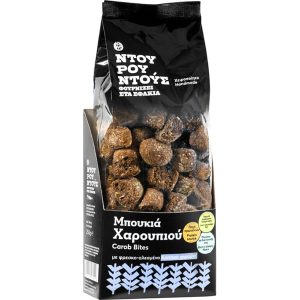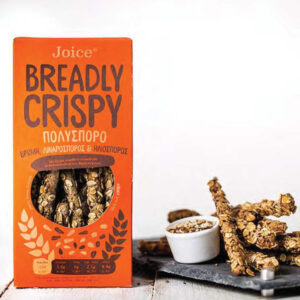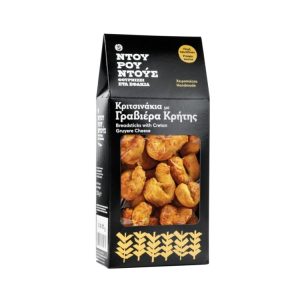Oikopal's organic orange cookies come to us from Trikala in Thessaly and are the best snack for every moment of the day!
These are an ideal choice for lovers of tradition. The traditional Greek recipe from grandma's orange cookies, at its best! A pure bun, which evokes delicious memories. Fermented with quality, 100% organic, raw materials and the taste of years and with a result that excites.
In addition to biologically certified raw materials, they are fermented without butter, eggs and milk. Thus, they are ideal for vegetarians and vegans. Finally, they do not contain palm oil, offering another shield to protect our health.
You will find them in original, practical and recyclable packaging that keep them fresh to the last!
Extra tip: Add these Organic & Vegan cookies in your bag and give yourself a wonderful taste of tradition!
PRODUCT INGREDIENTS
Wheat flour , Orange Juice (17 %), Vanilla, Sunflower Oil, Raw Sugar, Orange Essential Oil (0,14%), Clove, Baking agent: sodium bicarbonate (soda).
Organic product.
HISTORY BEHIND THE COMPANY
Since May 2016 but also with experience in the field of organic products since 2005, the company OIKOPAL, produces in its facilities, in Trikala Thessaly, organic cookies, organic breadsticks and traditional organic pasta.
With a sense of responsibility, a spirit of innovation and high goals and values, the experienced and well-trained staff supports and promotes the principles of healthy eating, both in the domestic and international market.
The company is controlled and certified by the DIO Organization. The audit concerns the application of the European Regulation (EC) 834/2007 for organic products. The control also concerns the application of the standard of Health and Safety of Food ISO 22000: 2005 - HACCP.
HISTORY ”FROM GOLD”BEHIND THE PRODUCT
Biscuits or small cakes ?? Probably the cakes we call muffins or individual cakes today were born from cookies! Cookies from the Latin bis (: twice) + cotto (: baked) and to find the first recipe we must ask homo erectus or homo sapiens!
It was then in the Neolithic Age when hot stones were the first oven and on days when the hunt had not gone very well, the grains that were in abundance were baked with water.
Other sources make it clear that the Chinese were the first to bake fruit and honey pies. Other sources inform us about the Assyrians who use clay pots, where they placed the dough before putting it on the fire!
In Ancient Greece, and especially in Athens and Chios, the local "placounters" are very popular in the gastronomic world. They looked like big cookies, they had honey, spices, fat and they were followed by the Roman "busellum" which were long lasting cookies!
In 7th century Persia, bakers developed the "biscuit nuts" by adding eggs, butter, cream, fruit and honey to the dough.
And we come to the end of the 14th century in Paris of painting, cabaret and Toulouse Lautrec. There, cookies are sold in the picturesque "boulangerie" to sweeten the Parisians of the Renaissance and the Middle Ages.
From then until today, the recipes are constantly evolving. The cookies were made with honey, then honey was replaced by sugar and now it returns dynamically as it is the healthiest and most valuable sweetener! Apart from that, new ingredients such as nuts and superfoods, dynamically invade the cookie recipes, making them a very tasty energy snack for our daily life!
| Weight | 0,210 kg |
|---|
Related products
Cookies─ Cookies
Breadsticks

